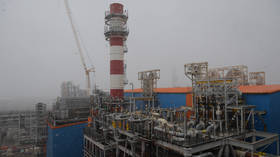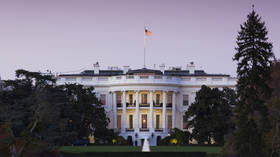100-degree heat inside the Arctic Circle: Siberian heatwave ‘almost impossible’ without climate change, says new study

This year’s Siberian heatwave, which has seen temperatures of over 38 degrees Celsius in the Arctic Circle, was made at least 600 times more likely by manmade climate change, according to a study led by the UK’s Met Office.
The temperature 38 degrees Celsius is equivalent to 100.4 degrees Fahrenheit.
A group of international scientists, including Professor Olga Zolina from Russia’s Shirshov Institute of Oceanology, discovered that temperatures were at least two degrees Celsius hotter than they would be without any human influence.
On June 20, a small Siberian town called Verkhoyansk, home to just 1,000 people, recorded a temperature of 38 degrees Celsius – the hottest ever inside the Arctic Circle. Verkhoyansk’s average July temperature is 19.9 degrees. In the winter, the town’s inhabitants regularly face long periods of below -40.
Also on rt.com 100 degrees Fahrenheit! Eastern Siberian town shatters record for hottest-ever temperature inside Arctic CircleAccording to researchers, this year’s heatwave “would have been almost impossible without the influence of human-caused climate change,” which increased the chances of such high temperatures “by a factor of at least 600.”
The lead author of the study, Andrew Ciavarella, called the findings “truly staggering.”
As well as abnormally high temperatures, Siberia has also suffered from vast swathes of wildfires this summer. On June 27, Russia’s forest fire aerial protection service reported that over a million hectares were ablaze.
Also on rt.com The Arctic is burning: As temperatures reach 100F, over a million hectares of Siberian forest is on fireLike this story? Share it with a friend!














